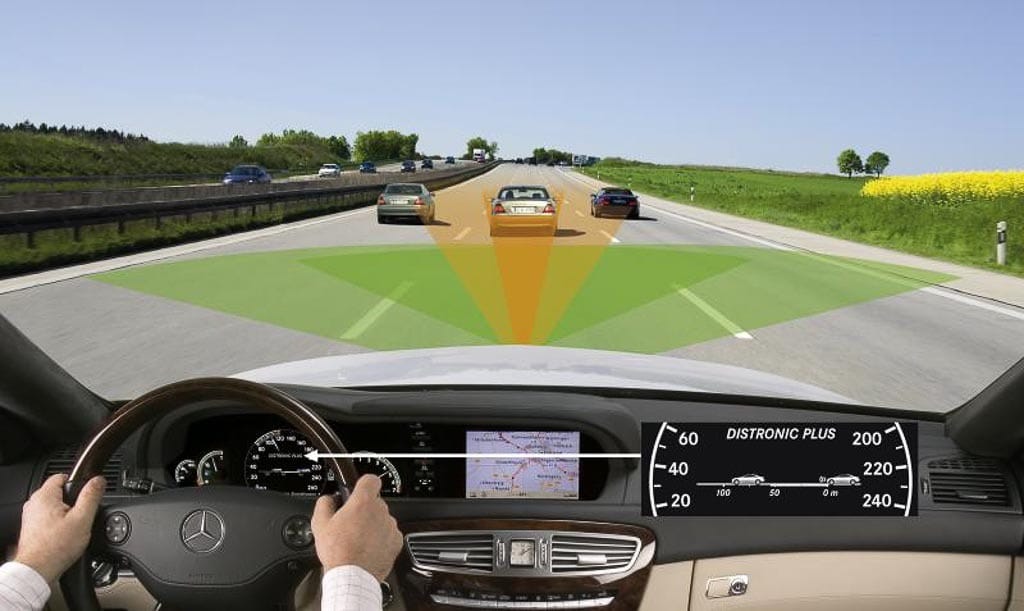The somewhat unwieldy term Adaptive Cruise Control hides a very exciting technology. ACC is even considered a trend-setter for new generations of cars
Adaptive Cruise Control – what’s behind the ACC system
Driver assistance systems, such as parking assistance, are nothing special any more. However, this does not apply to Adaptive Cruise Control, which is even considered to be one of the key components for the further development of autonomous vehicles. In any case, Adaptive Cruise Control, or ACC for short, can make a contribution to making driving even safer.
- Adaptive Cruise Control is by no means a substitute for a driver, but the system does help to significantly reduce the driver’s workload. However, the emphasis is clearly on relief, as the system is not capable of handling situations that require complex decision-making
- The German term Abstandsregeltempomat (Adaptive Cruise Control) already gives a hint of the tasks the ACC system is entrusted with. The driver assistance system monitors the distance to the vehicle in front and automatically adjusts the respective vehicle speed. In this way, any necessary braking distance is maintained and not undercut.
- In short: Adaptive Cruise Control ensures the correct safety distance by constantly calculating the optimum distance to the vehicle in front. Some of the adaptive cruise control systems are even able to detect other vehicles up to a distance of around 250 meters ahead. Based on the current calculations, the ACC system independently regulates the respective speed.
- If you are driving on a road with no traffic, the ACC system accelerates the car to the permitted speed, while in city traffic it adapts to the respective stop-and-go situations. Adaptive Cruise Control uses various sensors, such as laser and radar sensors, as well as cameras and GPS for the calculations.
Distance cruise control – what you should know
Many well-known car manufacturers work with ACC systems and accordingly there are a wide variety of models, such as Distance Control from BMW or Distronic from Mercedes-Benz. As already mentioned at the beginning, adaptive cruise control systems are a great help, but in contrast to autonomous driving, the full responsibility still lies with the driver.
- However, the ACC system, like all other driver assistance systems, should not be trusted blindly. Despite all the sophisticated technology, there may well be situations that overwhelm the system. These include, for example, difficult weather conditions or extremely confusing routes, such as roads in mountainous areas or long tunnels with unfavorable visibility conditions.
- However, if you are aware of the system’s shortcomings, Adaptive Cruise Control is a very useful driver assistance system that makes driving a car much more comfortable. And not only that, the ACC system also ensures greater safety on the road. In addition, adaptive cruise control can contribute to noticeably improved fuel efficiency by optimizing vehicle speed.
